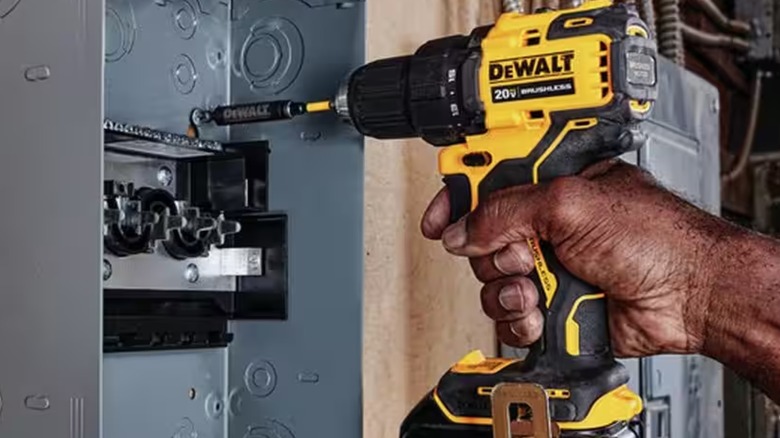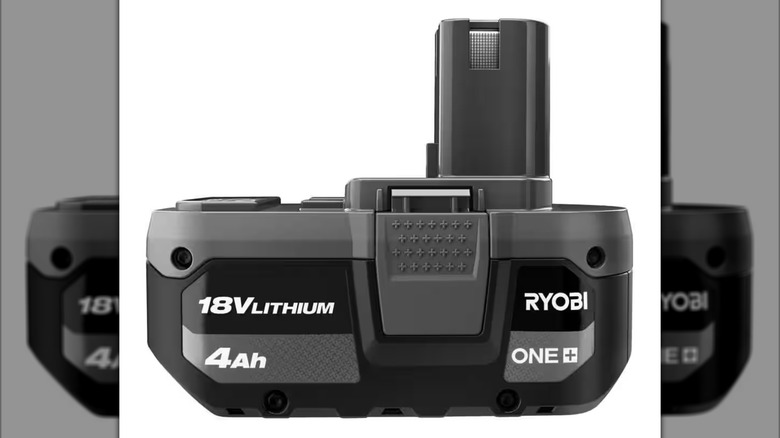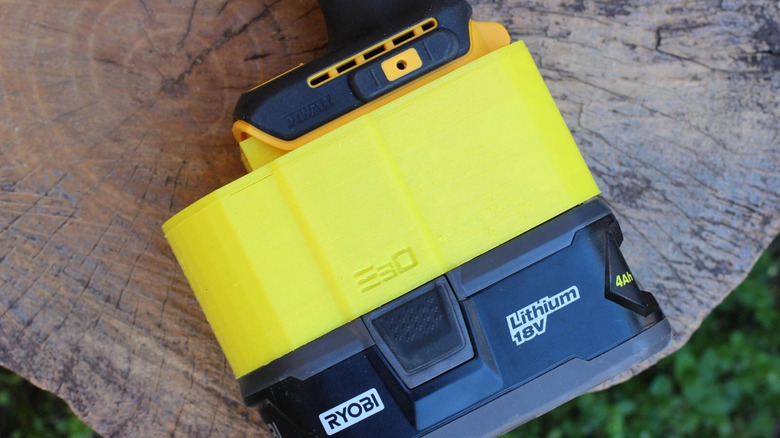Are Ryobi Batteries Compatible With DeWalt Tools?
We may receive a commission on purchases made from links.
Two of the most prominent brands in the hardware scene are Ryobi and DeWalt. Both of these brands offer similar arrays of battery-operated power tools and accessories for household and professional needs. Most handiworkers have their preferences for one brand or the other, but what about those who own a little bit of both? If you own Ryobi and DeWalt tools and batteries, would it be possible to save yourself a little trip to the supply cabinet and simply plug a Ryobi battery into a DeWalt tool?
Unfortunately, due to a combination of legal issues and physical differences, Ryobi batteries cannot be used with DeWalt tools. Putting aside the fact that both brands would prefer you stay within their respective ecosystems, there are simply too many major design differences between the connectors used by Ryobi batteries and DeWalt tools. Technically, these differences could be circumvented either through the use of third-party battery adapters or homebrew battery modification, but not only would the latter require mechanical expertise, but either option could end up permanently damaging your batteries and tools.
Ryobi batteries are not natively compatible with DeWalt tools
In addition to both Ryobi and DeWalt, nearly every hardware brand on the market uses its own proprietary format for rechargeable batteries. Some of these batteries can seem similar at a casual glance, with panels on top housing power connection terminals. However, if you take a look at the tops of comparable Ryobi and DeWalt battery packs, you can see a pretty distinctive problem.
If you place a Ryobi ONE+ 18V 4Ah battery next to a DeWalt 20V MAX 4Ah battery, you'll see that the connectors on top of the batteries are completely different. A DeWalt battery has the traditional flat panel on top with several divots concealing the power terminals, as well as connecting rails for sliding the battery onto a DeWalt tool. A Ryobi battery, meanwhile, has a distinctive stalk jutting out of the top, designed to be plugged directly into a hole on a Ryobi tool. The stalk has terminals on its sides that sync up to internal receivers within that hole.
Due to their different connection formats, a Ryobi battery has no way of actually connecting to a DeWalt tool. It has no connecting rails to secure itself to the DeWalt tool's receiver, and even if it could somehow be secured in place, the different terminal placements mean that the battery has no way to actually feed power into the DeWalt tool.
Modifications or adapters could connect them, but this is hazardous
On paper, both Ryobi and DeWalt batteries use similar means of power storage and delivery. It's just the physical differences that prevent a Ryobi battery from connecting to a DeWalt tool. It would technically be possible to connect the former to the latter through the use of modification, such as opening the battery's case and wiring its power cells into the tool's receiver directly. However, doing this would require a fair bit of mechanical and electrical engineering knowledge; attempting to do this without such knowledge would be extremely dangerous.
A relatively safer homebrew option would be to use a third-party battery adapter. Various unofficial adapter accessories are sold on platforms like Amazon and eBay, which can clip onto a Ryobi battery and plug into a DeWalt tool. Unfortunately, this isn't a perfect solution either. Using a battery adapter forcefully circumvents the protective technology built into a Ryobi battery, making power flow with no particular optimizations. This could result in a power flow that's either less than the necessary amount to use the tool or entirely too much power that ends up burning out the motor entirely.
The most glaring problem with both modification and third-party battery adapters is that both are considered unlicensed product modifications. As such, if your batteries or tools are permanently damaged through either practice, neither Ryobi nor DeWalt will offer you service or replacements, as you've violated both of their warranties.


